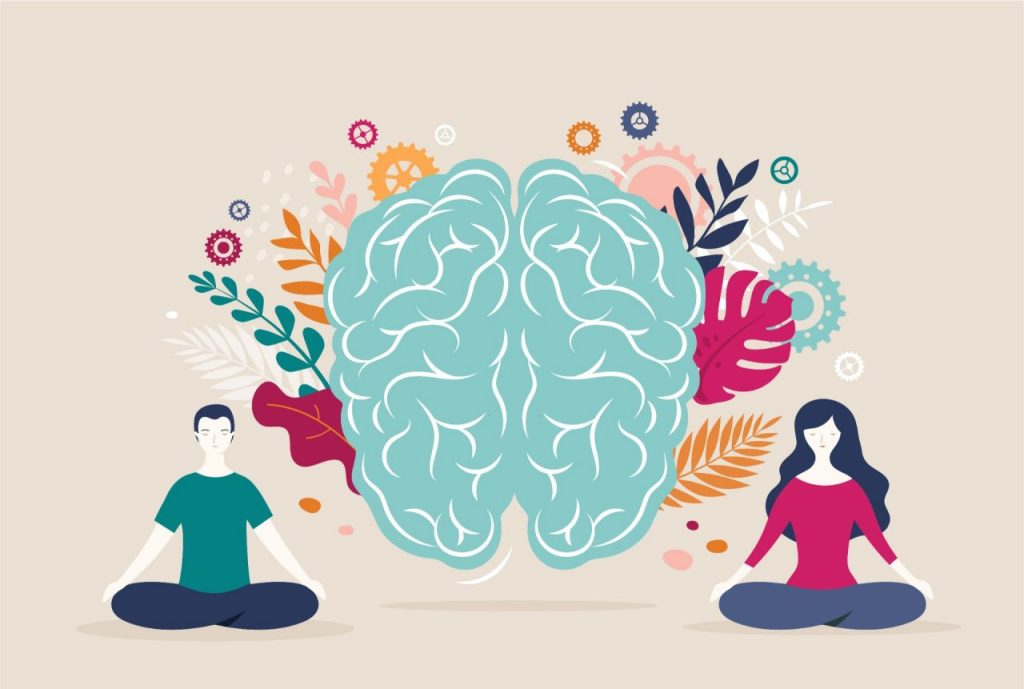In today’s fast-paced world, multitasking has become a way of life for many people. With the constant demands of work, family, and social commitments, it can be tempting to try and juggle multiple tasks at once in an effort to get everything done quickly and efficiently. However, recent research suggests that multitasking may actually be making us more anxious and less productive.
Multitasking is defined as the act of performing multiple tasks simultaneously or in rapid succession. While it might seem like a great way to get more done in less time, the reality is that our brains are simply not designed to focus on more than one task at a time. When we attempt to multitask, what is actually happening is that our brains are constantly switching back and forth between tasks, which can lead to increased levels of stress and anxiety.
One study conducted by researchers at Stanford University found that people who multitask on a regular basis are more easily distracted, have difficulty concentrating, and are more likely to experience feelings of anxiety. The researchers found that even self-proclaimed “high multitaskers” were actually less efficient at completing tasks and showed a decrease in cognitive control compared to those who focused on one task at a time.
One of the main reasons why multitasking can lead to anxiety is that it creates a constant sense of urgency and pressure to get things done quickly. When we are constantly switching between tasks, our brains are never able to fully focus on the task at hand, which can lead to feelings of overwhelm and stress. This can ultimately lead to a decrease in productivity and an increase in anxiety levels.
Another reason why multitasking can be anxiety-inducing is that it can lead to a sense of being constantly overwhelmed and overstimulated. When we are constantly bombarded with information and tasks, our brains can become overloaded and struggle to process everything effectively. This can lead to feelings of stress, anxiety, and an inability to concentrate on any one task for a sustained period of time.
Furthermore, multitasking can also have negative effects on our physical health. Studies have shown that multitasking can lead to increased levels of cortisol, the stress hormone, in the body. Elevated levels of cortisol can weaken the immune system, disrupt sleep patterns, and increase the risk of developing chronic health conditions such as heart disease and diabetes.
So, what can we do to combat the negative effects of multitasking and alleviate feelings of anxiety? The key is to practice mindfulness and focus on one task at a time. By giving our full attention to each task, we can actually increase our productivity, improve our concentration, and reduce feelings of stress and anxiety.
One way to practice mindfulness and focus on one task at a time is to prioritize your to-do list and tackle each task sequentially. By breaking down your tasks into smaller, more manageable chunks and focusing on completing one task before moving on to the next, you can increase your efficiency and reduce feelings of overwhelm.
Another helpful strategy is to limit distractions and create a conducive work environment. This can include turning off notifications on your phone, setting aside dedicated time for work without interruptions, and creating a clutter-free workspace. By creating a calm and focused environment, you can improve your ability to concentrate on one task at a time and reduce feelings of anxiety.
It is also important to take breaks and give yourself time to recharge. Taking short breaks throughout the day can help to refresh your mind and prevent burnout. By incorporating brief moments of relaxation and self-care into your daily routine, you can improve your overall well-being and reduce feelings of stress and anxiety.
In conclusion, while multitasking may seem like a necessary evil in today’s fast-paced world, it is important to recognize the negative effects it can have on our mental and physical health. By practicing mindfulness, focusing on one task at a time, and creating a supportive work environment, we can combat the negative effects of multitasking and alleviate feelings of anxiety. Remember, it’s okay to slow down, prioritize self-care, and give yourself the time and space you need to focus on one task at a time. Your mental health and well-being are worth it.

